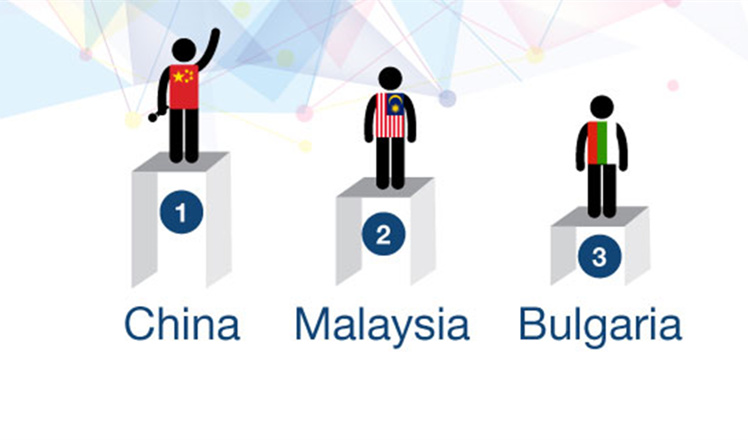Replenishing the pond
Updated: 2016-08-17 17:45
By Erik Solheim(chinadaily.com.cn)
|
||||||||
|
 |
|
Erik Solheim [Photo provided to chinadaily.com.cn] |
“The frog does not drink up the pond in which it lives.”
Sadly, the wisdom of this old Chinese proverb appears to have been largely forgotten. The world’s seven billion humans are drinking up the planet’s resources in ever-greater quantities, draining Earth’s pond of the very stuff that sustains human life.
Today, we consume more resources than at any point in human history. The amount of stuff we use in order to meet our needs has exploded. In our pond, a growing number of humans are all clamoring for more space and a greater share of dwindling resources. This is clearly not viable. We are sleepwalking toward a world where what we need to survive and thrive is in short supply.
Last week, we passed a troubling milestone: the day when humanity used up all of the renewable natural resources that the planet can replenish in a year. Known as Earth Overshoot Day, this day arrived five days earlier than last year. It’s a disturbing sign. Humanity’s consumption of renewable natural resources continues to rise despite the dangers to the environment and ourselves.
We can see the impact of this consumption here in China. China has zoomed past America to become the largest car market in the world. This example is terrific news for the Chinese economy, whose success in recent decades has lifted hundreds of millions out of poverty. But the news is not as good for the country’s pollution levels, which frequently reach dangerous highs in many cities and harm the health of millions of people. It’s also a short-term economic benefit. Long-term economic drawbacks arise as well, such as restrictions on production and traffic circulation, and health costs from pollution.
We have witnessed the number of middle-income consumers double to 2.4 billion worldwide in the last two decades. This boom brings with it an unprecedented appetite for goods and places an even heavier burden on the world’s natural resources.
In light of these trends, it is clear that how we choose to live as individuals – how we power our homes, what we eat, what cars we drive, how we choose to spend our money – has the power to reshape the planet.
One simple fact underlines this. If the whole world switched to energy-efficient lighting tomorrow it would reduce emissions of carbon dioxide by 530 million tonnes annually, equivalent to shutting down 154 coal-fired power plants each year. While this change could be accelerated with government action, each and every one of us can make a difference by doing something as simple as changing a light bulb.
Consumers around the world are aware of this need for change. In Europe, 72 percent of consumers surveyed say they are willing to buy green products, like energy efficient light bulbs.
- Malaysian authorities say ship carrying diesel hijacked
- Army commander: THAAD would 'easily affect' China-US ties
- Twin panda cubs confirmed born in Vienna zoo
- Four killed in boat collision in Greece
- Premier Li to receive Aung San Suu Kyi
- S Korean president names 3 new ministers for partial reshuffle

 China edges Brazil in volleyball quarterfinals
China edges Brazil in volleyball quarterfinals
 China's women's table tennis team sweeps gold
China's women's table tennis team sweeps gold
 Artists build sand sculptures to greet upcoming G20
Artists build sand sculptures to greet upcoming G20
 Top 10 biggest auto makers of 2015
Top 10 biggest auto makers of 2015
 British dad turns breakfast into work of art
British dad turns breakfast into work of art
 China inches up Global Innovation Index 2016
China inches up Global Innovation Index 2016
 Female soldiers on Frigate Jingzhou
Female soldiers on Frigate Jingzhou
 Synchronized swimming duo advances into final
Synchronized swimming duo advances into final
Most Viewed
Editor's Picks

|

|

|

|

|

|
Today's Top News
Trump outlines anti-terror plan, proposing extreme vetting for immigrants
Phelps puts spotlight on cupping
US launches airstrikes against IS targets in Libya's Sirte
Ministry slams US-Korean THAAD deployment
Two police officers shot at protest in Dallas
Abe's blame game reveals his policies failing to get results
Ending wildlife trafficking must be policy priority in Asia
Effects of supply-side reform take time to be seen
US Weekly

|

|







